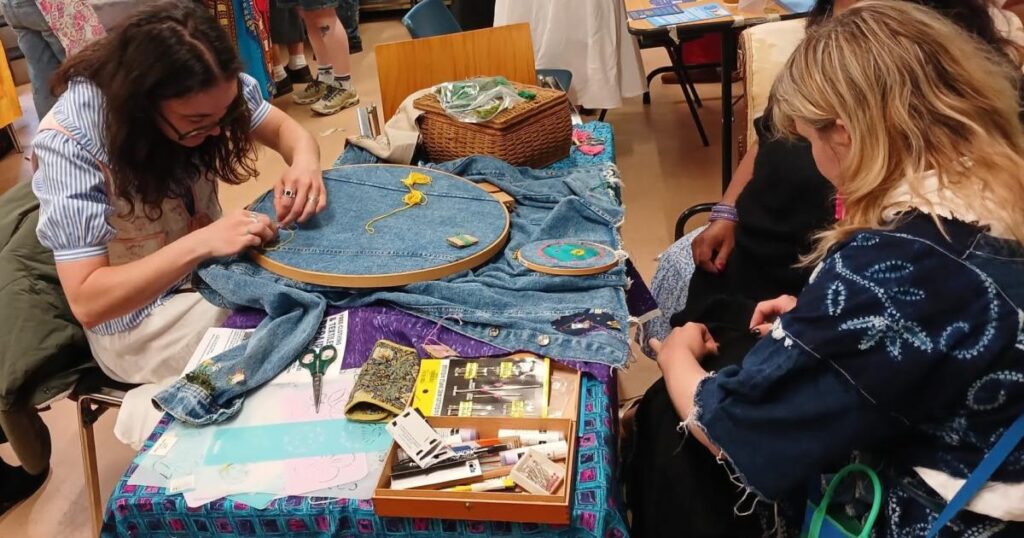Make Mee Studio, a sewing social enterprise, has teamed up with Lewisham Council’s strategic waste team to run the sessions across the borough, offering residents the chance to mend their clothes at no cost.
Over the past eight months, nearly 300 items of clothing have been repaired or are in the process of being fixed, giving a second life to everything from jackets to socks.
Jaime Greenly, co-founder of Make Mee Studio, said: “The thing we love about teaching mending is the beautiful stories we get to hear about the garments people are trying to save.
“It might be a hand-me-down from a relative or a long-cherished pair of favourite jeans.
“We think supporting and nurturing those connections and between people and their garments is really important for waste reduction.
“Clothes are seen as so disposable these days, we want to encourage people to love their clothes for longer.”

One participant said: “The space was calm, welcoming and inspiring, I felt really supported.”
Another added: “Loved showing my 7-year-old how to darn, so satisfying and joyful.”
Beyond teaching practical skills, the sessions also aim to help people save money, build confidence, and improve wellbeing through hands-on creativity.
The environmental benefits are significant, too.
Lewisham Council’s strategic waste team points out that clothing and textile disposal is a growing problem for local authorities across the UK.
An estimated 350,000 tonnes of clothing, worth around £140 million, are sent to landfill each year.
Much of this could be reused or recycled, but the recycling system is under strain.
Textile sorting facilities are overwhelmed, and around £88 million is spent each year managing unwanted garments.
Many of these clothes end up being shipped overseas, contributing to environmental issues abroad.
A Greenpeace report highlights that 15 million “throwaway” items arrive in Ghana every week, with a large portion coming from the UK.
Repairing clothes offers a practical solution.
According to WRAP’s Displacement Rates Untangled report, 82.2 per cent of clothing repairs prevent the purchase of a new garment.
Extending the life of an item by just nine months can reduce its carbon, waste and water footprints by 20 to 30 per cent, and cut resource costs by 20 per cent—equivalent to £5 billion.
The success of the workshops means they will continue throughout the year, with high demand from residents.
The next session is scheduled for Thursday, September 11 at Deptford Lounge, from 10.30am to 1.30pm.
The workshops are free, open to all skill levels, and designed to help people save money, learn new skills, and reduce their environmental impact.
Ms Greenly said: “Clothes are seen as so disposable these days, we want to encourage people to love their clothes for longer.”




